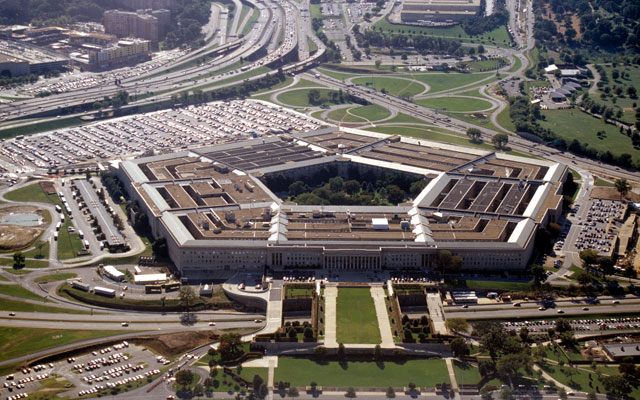Some Good, Some Bad in FY2014 National Defense Authorization Act
Michaela Dodge /
The FY2014 National Defense Authorization Act (NDAA), which specifies the budget for the Department of Defense, does address some of the top 10 issues that Heritage raised in May, but falls short on the others.
The NDAA is an important piece of legislation, and one of the few that continues to make it to the President’s desk. For the past 51 years, the Senate and the House have agreed on the bill.
The current version of the NDAA has some positive aspects, but also fails in some key areas.
The NDAA rightfully does not mandate that the U.S. withdraw its military forces from Europe, but it does impose certain limitations on U.S. construction projects in the European Command area of responsibility.
It fails to address security concerns in Asia and Southeast Asia by not endorsing the sale of F-16C/D fighter aircraft to Taiwan and/or assisting Taiwan in the acquisition of eight submarines.
It does not condition U.S. military-to-military engagement with Burma. It does, however, require that the annual report on military and security developments in China includes a section on the Chinese fifth-generation fighter program.
It fails to address the Navy’s wasteful practice of spending the Pentagon’s precious resources on biofuels, which cost more than conventional fuels and potentially increase maintenance requirements for the ships that use them.
The NDAA does take important steps to protect the U.S. missile defense program, including prohibiting U.S. resources from being spent on integrating the Chinese air defense system that Turkey procured with the North Atlantic Treaty Organization’s network. The bill also authorizes funding for a radar system on the East Coast, an essential step to improving the current capabilities of U.S. missile defense systems for the protection of the U.S. homeland, while limiting U.S. sharing of sensitive missile defense information with Moscow.
Despite a third successful test in November, the lawmakers chose to terminate the Medium Extended Air Defense System (MEADS), one of the few missile defense programs that receives direct development funds from U.S. allies Germany and Italy. The system would likely provide a better defense against combined ballistic and cruise missile attacks.
The NDAA does continue worthwhile efforts to ensure that U.S. nuclear deterrence remains credible and that the triad of strategic forces—comprising of intercontinental-range ballistic missiles, submarine-launched ballistic missiles, and bombers—continues in the future. It also calls for clarifying funding for the New Strategic Arms Reduction Treaty implementation and retaining U.S. capability to deploy multiple re-entry vehicles, independently targetable, so that the U.S. can react to a hostile nuclear-armed adversary in the future. The legislation calls for the development of a follow-on, long-range standoff weapon.
As in previous years, military entitlement reforms are not addressed in this NDAA despite growing concerns regarding the fiscal sustainability of the program and whether it serves our recruitment and retention goals in the most effective way. This is a missed opportunity to make improvements in the lives of those who have served or will serve.
The NDAA wisely limits the Pentagon’s ability to spend funding on implementation of the damaging U.N. Arms Trade Treaty, which has not been subject to the Senate’s advice and consent role.
Regrettably, it prevents funding for contracts entered into with Rosoboronexport, a Russian arms manufacturer that would sell Mi-17 helicopters to the Afghans through the transaction with the U.S. All things considered, Mi-17 helicopters are the best for the Afghans and for U.S. taxpayers.
This bill was released by Congress last week. While the vote in the Senate is expected any day now (the House approved the bill on Thursday), it is a compromise agreement that will not likely be significantly altered in the few days left before the end of the year.

